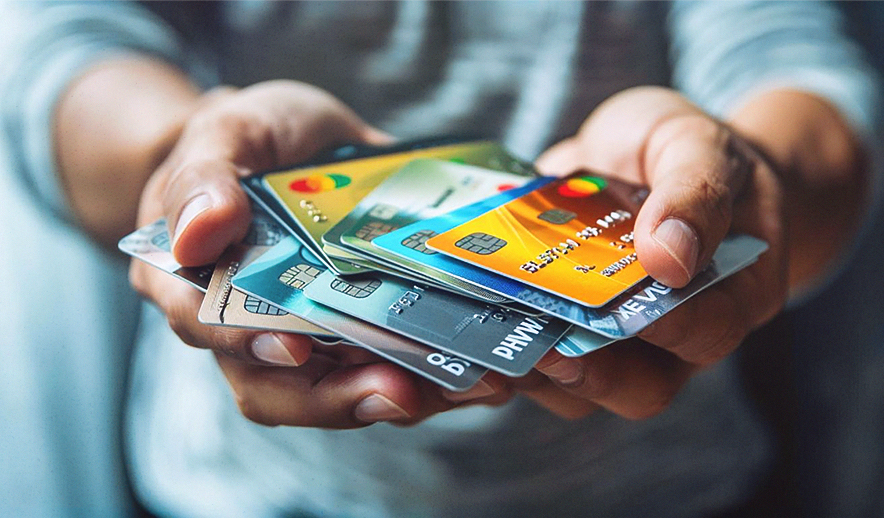
Five Smart Ways to Manage Credit Cards in the UAE for Financial Success

Credit cards are an essential and convenient tool for managing your finances, especially in a vibrant market like the UAE. Whether you’re using credit cards for daily expenses, earning rewards on your spending, or financing larger purchases, they can be incredibly beneficial when used responsibly. With a variety of attractive offers from major UAE banks—such as ENBD credit cards, FAB credit cards, Citibank credit cards, HSBC credit cards, ADCB credit cards, ADIB credit cards, and EIB credit cards—credit cards can help you build a strong financial future when handled wisely.
To make the most out of your credit card and maintain a healthy credit score, here are five smart strategies to follow in the UAE.
1. Always Make Payments on Time
Making timely payments is the cornerstone of maintaining a good credit score and ensuring you get the most out of your credit card. In the UAE, your payment history is reported to the Etihad Credit Bureau (ECB), and paying on time shows that you are a responsible borrower.
Why is it Important ?
Boosts Your Credit Score : On-time payments positively influence your credit score, making it easier to access loans or new credit cards.
Avoids Late Fees and Interest : Timely payments help you steer clear of extra charges, like late fees and interest, which can otherwise accumulate quickly.
Improves Future Borrowing Potential : Lenders are more likely to offer favorable terms and lower interest rates when they see a clean payment history.
Tips to Help You Stay on Track :
- Set up automatic payments to ensure you never miss a due date. Many UAE banks, such as ADIB and Citibank, allow you to automate payments through their mobile apps.
- Schedule reminders on your phone to keep track of upcoming payments.
- If you’re facing financial difficulties, reach out to your bank early to discuss options like restructuring payments or requesting a temporary payment pause.
2. Manage Your Credit Card Balance Wisely
Credit cards offer the flexibility to carry a balance but keeping that balance in check is key to optimizing your credit score and minimizing interest payments. The Etihad Credit Bureau looks closely at your credit utilization ratio, which is the amount of credit you’re using relative to your total credit limit.
Why is it Important ?
Maintains a Low Credit Utilization : Ideally, you should keep your credit utilization below 30% of your total credit limit. This positively impacts your credit score and shows lenders that you’re managing your credit responsibly.
Avoids High Interest Costs : By paying off your balance each month, you can avoid hefty interest fees that can accumulate if you carry a high balance.
Reduces Debt : Keeping your balance low allows you to pay off your debt faster and stay in control of your finances.
Smart Strategies to Adopt :
- Try to pay your balance in full each month to avoid interest charges. For example, if your credit card has a limit of AED 10,000, aim to always keep your balance below AED 3,000.
- If you’re dealing with high-interest debt, consider using a balance transfer offer from banks to move your balance to a card with a lower interest rate or 0% interest for a limited time.
3. Be Selective with New Credit Card Applications
With so many exciting rewards and offers available for best credit cards in UAE, it’s tempting to apply for multiple credit cards at once. However, being strategic about when and how often you apply for new cards will help protect your credit score in the long term.
Why is it Important ?
Preserves Credit History : Opening too many new accounts at once can reduce the average age of your credit accounts, which may negatively affect your credit score.
Easier to Manage Payments : Having fewer cards makes it easier to keep track of due dates and avoid missed payments.
How to Be Strategic ?
- Consider your spending habits when choosing a new card. For instance, if you frequently travel, you might benefit from a Citibank credit card that offers air miles and other travel perks.
- Focus on maintaining and maximizing the benefits of your existing cards to build a strong credit history.
4. Keep Older Credit Card Accounts Open
After paying off a credit card, it might be tempting to close the account to avoid overspending. However, keeping old credit card accounts open can benefit your credit score and provide additional financial flexibility.
Why is it important?
Lengthens Your Credit History : One of the factors that influence your credit score is the length of your credit history. By keeping an older credit card, like an HSBC or Citibank card, open, you help maintain a longer average account age, which improves your credit score.
Maintains Low Credit Utilization : Closing a credit card decreases your available credit, which can raise your credit utilization ratio. By keeping the account open, you preserve your available credit and keep your utilization low.
Best Practices :
- Keep your old accounts open, especially if they don’t come with annual fees. Use them for small, manageable purchases to keep the account active and benefit from their long credit history.
- If you must close a credit card, start with the newest ones to minimize the impact on your credit score.
5. Regularly Review Your Credit Report
It’s easy to overlook, but regularly checking your credit report is crucial for maintaining financial health. In the UAE, the Etihad Credit Bureau compiles your credit information, and staying on top of this report can help you catch errors early and ensure your credit profile is accurate.
Why is it important?
Catch Errors Early : Errors, such as incorrect balances or missed payments listed by mistake, can hurt your credit score. Reviewing your report allows you to catch and dispute these mistakes promptly.
Detect Fraud : Regularly checking your credit report helps you spot any unauthorized activity or fraudulent accounts opened in your name, allowing you to act quickly to resolve the issue.
Simple Steps :
Review your credit report at least once a year. You can access it through the Etihad Credit Bureau for a small fee.
Dispute any errors you find directly with the credit bureau or the bank that provided the incorrect information.
If you notice suspicious activity, consider placing a credit freeze or fraud alert on your account to protect yourself.
Conclusion
Credit cards are a convenient and powerful tool for managing your finances in the UAE. With smart strategies—such as making timely payments, managing your balance effectively, being selective with new credit card applications, keeping old accounts open, and regularly reviewing your credit report—you can use your credit cards to build a strong financial foundation.
The wide range of credit card offers from banks like ENBD, FAB, Citibank, and HSBC means there are plenty of opportunities to take advantage of rewards, cashback, and promotional rates. By proactively managing your credit, you can ensure better loan terms, lower interest rates, and a secure financial future in the UAE.
Let your credit cards work for you, not against you, by making informed choices and using them as a tool for long-term financial success.



